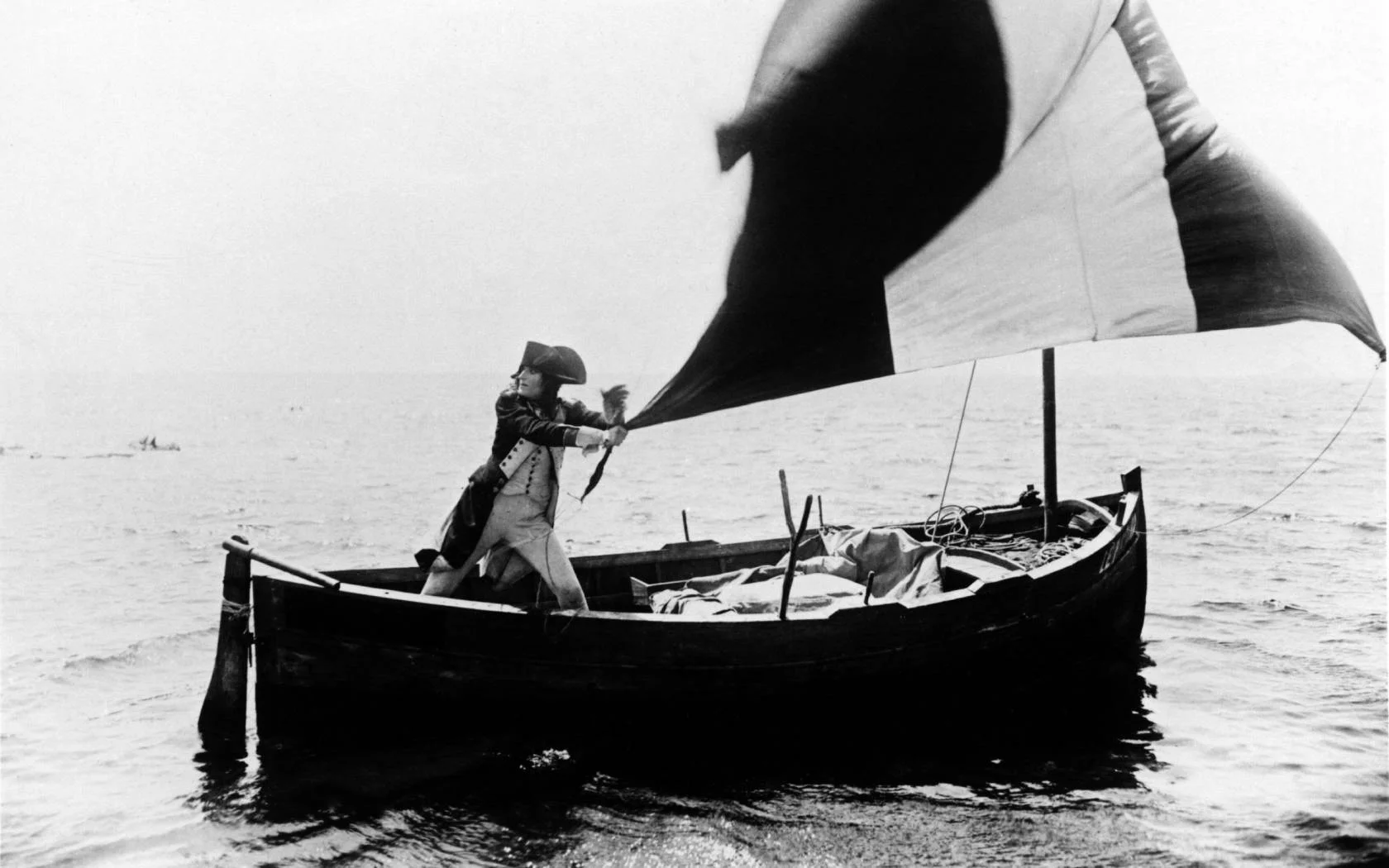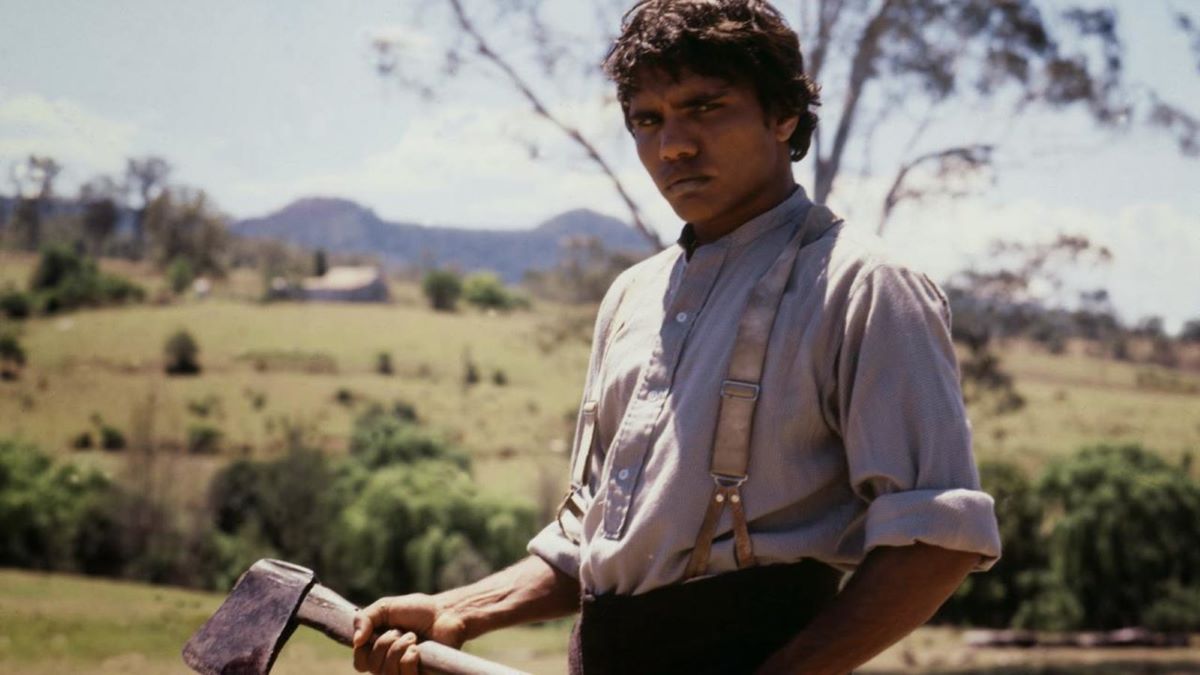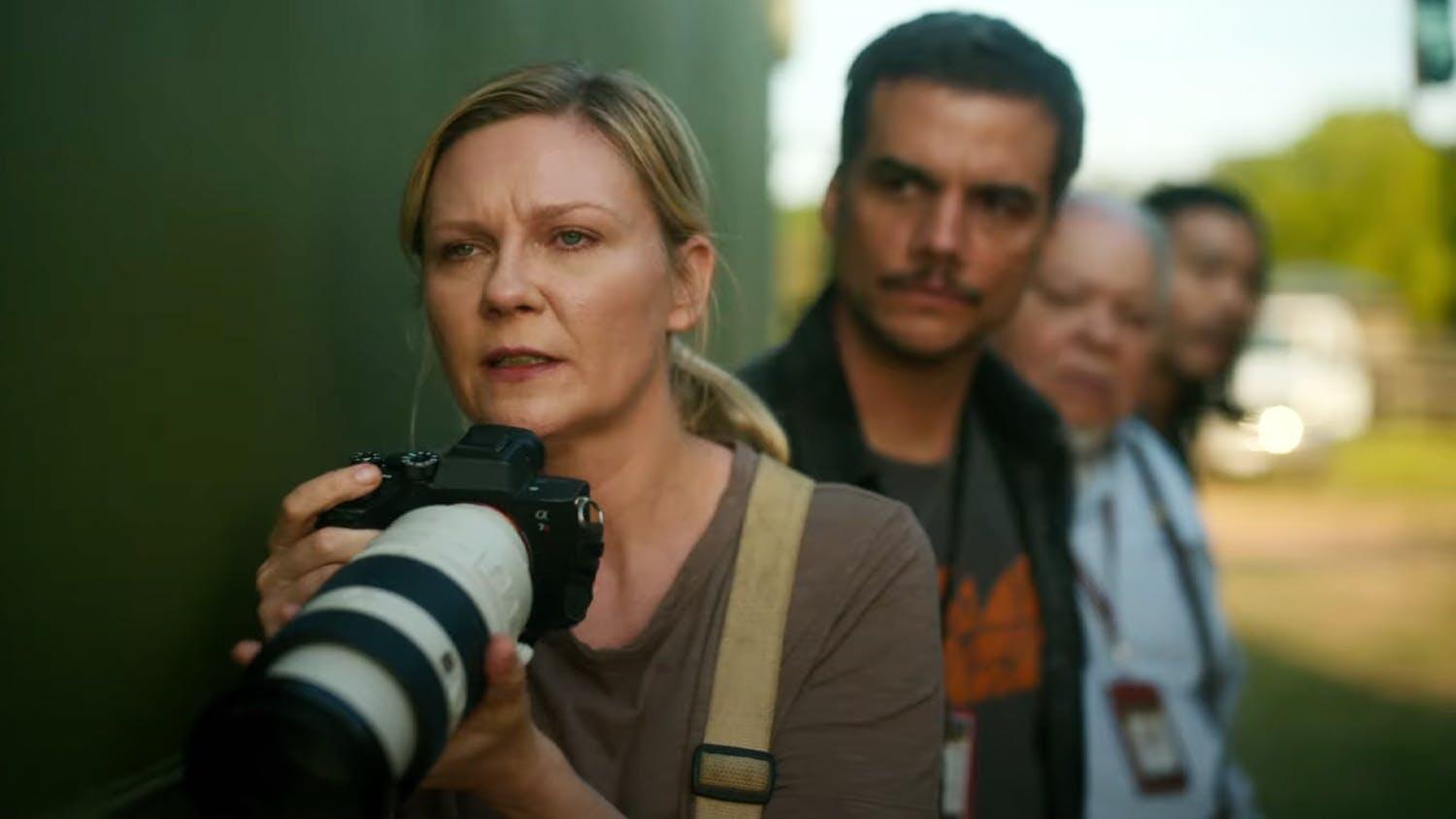by Pauline Kael
In Tim Burton’s Edward Scissorhands, the towers and spires of a medieval castle rise high in the air right out of the end of a bare, flat suburban street. The houses and cars in the suburbs are in a comically limited palette of pastels; the dark castle is extravagantly junky and macabre, like the setting of an old horror movie seen on a black-and-white TV. The amiable suburbanites, cozy in their little square rooms (with very small windows), see the castle whenever they look up the street—its tangled shrubs and statues and fallen stones are a gothic, Expressionist playground—but they hardly seem to notice it. They refer to it casually and without curiosity as “the mansion.”
One day, Peg Boggs, the Avon lady (Dianne Wiest), in her swing-skirted lavender suit and pillbox hat, having exhausted the sales possibilities among her regular customers in the neighborhood, sees the castle in her car mirror and thinks she’ll give it a try. She pokes about the deserted, tumbledown place and is about to leave when a voice says, “Don’t go.” It’s an adolescent boy, white-faced Edward (Johnny Depp), who looks like a somnambulist in a German silent. He has a snarled mop of spiky black hair, melancholy circles around his eyes, and a tiny Cupid’s-bow mouth. It takes a second to register that the welts on his face are self-inflicted accidental cuts. Edward was created in the castle’s kitchen workshop by an aged inventor (Vincent Price, in flashbacks), who gave him a gigantic cookie-cutter heart but died before he could attach the hands he had prepared. Orphaned, Edward is left by himself with two collections of long, sharp shears dangling where his hands should be. Peg, ever the professional, dabs at his cuts with astringent from her sample case, as if he’d cut himself shaving, and she tries to put a little color on his cheeks. Worrying and motherly, she feels she can’t go back down the street and leave this polite, forlorn teen-ager, who spends his time whacking away at the shrubbery, cutting out topiary animals. She invites him to come home with her.
Johnny Depp’s Edward is a fairy-tale boy: he’s like Harry Langdon playing Cesare in The Cabinet of Dr. Caligari; he’s like Frankenstein’s monster by way of L. Frank Baum. But the Boggs family accepts him as if he were an ordinary guest in the house. Peg’s husband (Alan Arkin)—a real fifties-style dad—is the perfect host; he makes the boy feel wanted. And the assorted suburban matrons welcome him. Gratefully he transforms their hedges into mythical creatures, and when they see his skill at trimming a poodle he’s turned loose on their hairdos. They treat him as a minor celebrity and prepare to set him up in a salon. Suburbia is a form of surreal entertainment here: the physical layouts have an element of surprise; the score, by Danny Elfman, has an antic sweep to it. And you develop an affection for the residents because they make you laugh. But Edward falls swooningly in love with Peg’s daughter (Winona Ryder), whereupon her vengeful boyfriend (Anthony Michael Hall) tricks him into a robbery, and the suburbanites, thinking he’s dangerous, turn against him. And everything sours. We don’t want to see the conventional “dark side” of these people: it’s a betrayal of the film’s comic spirit—the material turns into cheesy plot-centered melodrama.
There’s something deeper the matter with Edward Scissorhands: the central idea of a boy who cuts when he wants to touch. It has no mystery: it’s pre-interpreted. And Tim Burton is being too personal, too tenderly self-serving. Edward is the pure creative artist, who can’t be around people, because he can’t help hurting them. He’s the person who can’t reach out, can’t communicate, can’t express his love. He’s the woeful misunderstood kid.
A draftsman director, Burton (he’s thirty-two) is the most original of the younger moviemakers. His comic-book films—Pee-wee’s Big Adventure, Beetlejuice, Batman—are all conceived graphically, and their hipster, exploding-cigar funkiness isn’t fully explicable. Scissorhands is conceived graphically, too, but it’s plaintive, and it doesn’t seem to want to be more than that. Burton shows us the pale, lonely kid who feels there’s no place for him. (Scissorhands suggests a picture he might have wanted to do when he was still a teen-age animator.) This representation of his interior life has to be only one part of it: where’s the part that put the demon Beetlejuice on the screen and let loose the Joker? That’s the interior Burton some of us want to see, not the droopy one who says, “I’ve always been a sweet guy.’’ Johnny Depp’s Edward is an emasculated Tim Burton. Edward isn’t angry even when he’s mistreated; his scissor hands have no relation to his mild, angelic nature.
A great script might have done something with the vision of Transylvania looming over suburbia. Burton has said that the gothic-movie world helped him get through childhood. Are the suburbanites completely cut off from it, as they seem to be? (Then w’hat’s it doing there?) The script, written by Caroline Thompson, based on Burton’s sketches and the story the two of them devised, is undernourished. The movie is a tribute to the seventy-nine-year-old Vincent Price; it could have used more interaction between the inventor and Edwrard, and some suggestion of what the boy was intended for. (With those whirling, rhythmic shears, he should have become a film editor.)
There’s one magical performance: Dianne Wiest’s Peg pushes open the huge castle door, saying brightly, “Hello! Avon calling!’’—Gracie Allen couldn’t have done it with more radiant daffiness. As a comedienne, Wiest is like a more accessible Maggie Smith; you delight in her tidy gestures and wordplay. You like her being an Avon lady: Peg is daintily stylized—living kitsch.
But when the picture stops being comic it turns into a different kind of kitsch. Scissorhands is very Christmassy, and it’s likely to be greeted by a congratulatory press—the kind that says, “At last, Tim Burton shows us what’s in his heart.’’ Well, the terms in which it will be praised should tell him what’s wrong with it. Beetlejuice would have spit in this movie’s eye.
The New Yorker, December 17, 1990




